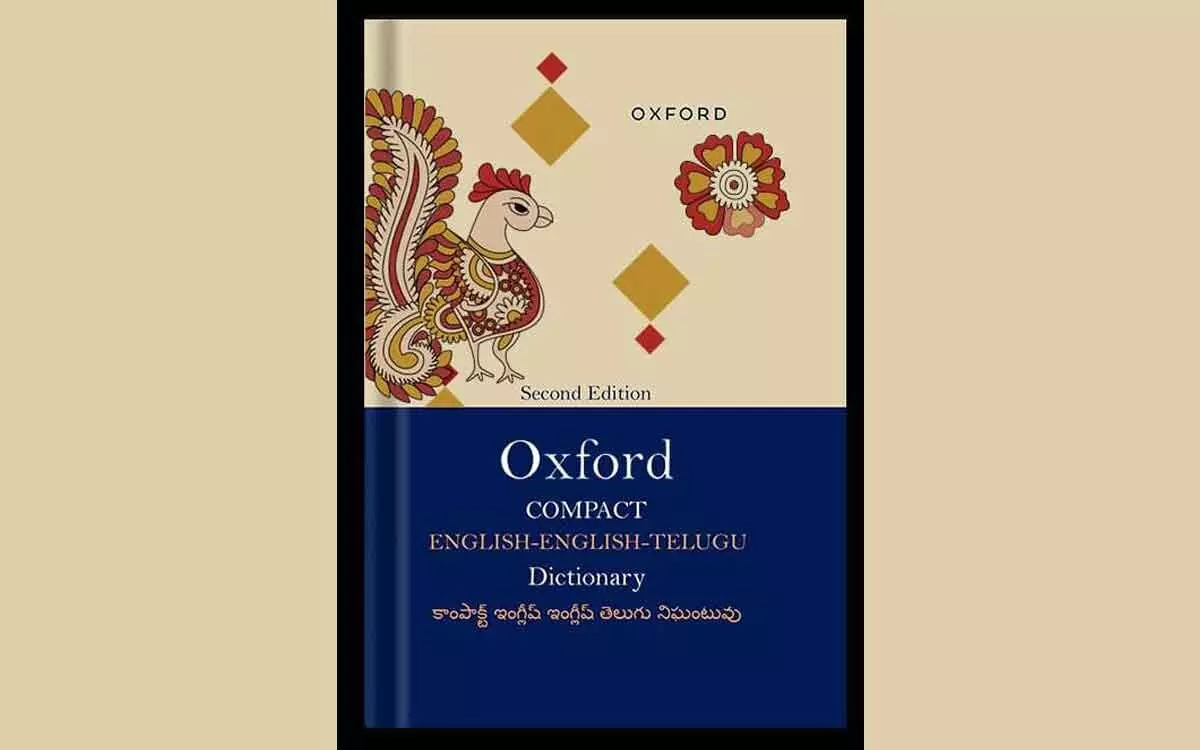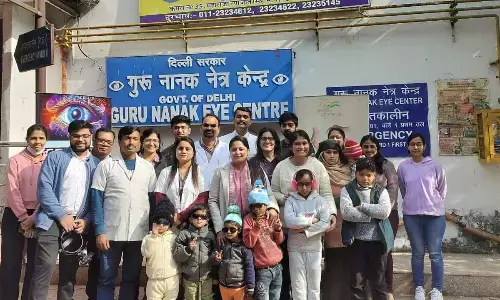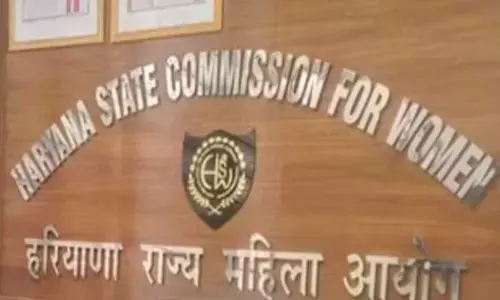Telugu Language Day: Oxford University Press Launches New Edition of Bilingual English-Telugu Dictionary

On the occasion of the Telugu Language Day, observed on 29 August every year, the Oxford University Press (OUP), a department of the University of Oxford, announced the launch of a new edition of bilingual English-English-Telugu Dictionary.
Hyderabad : On the occasion of the Telugu Language Day, observed on 29 August every year, the Oxford University Press (OUP), a department of the University of Oxford, announced the launch of a new edition of bilingual English-English-Telugu Dictionary. Telugu Language Day coincides with the birthday of the Telugu poet Gidugu Venkata Ramamurthy. It is celebrated across Telangana and Andhra Pradesh with the objective of the betterment of the Telugu language.
Incorporating 3,000 new words inthe new edition, the Oxford Compact English-English-Telugu Dictionary includes over 27,000 words, phrases, idioms, phrasal verbs and derivatives with their detailed translations in Telugu. It contains over 1,100 synonyms and antonyms and 2,000 keywords that are the most important words to know in English. The new cover design, featuring Kalamkari, a type of hand-painted cottontextile indigenous to the states of Andhra Pradesh & Telangana, illustrates the rich cultural heritage, art and linguistic identity of the region, binding the people with their roots.
Bilingual dictionaries, especially, prove invaluable for individuals who predominantly engage with their mother tongue in reading and writing, yet aspire to attain proficiency in English. It underscores the significance of safeguarding India's diverse linguistic heritage: an approach that will enhance cultural consciousness, anchoring students to their and linguistic cultural roots. OUP India currently publishes dictionaries in 12 Indian languages: Assamese, Bengali, Gujarati, Kannada, Malayalam, Marathi, Punjabi, Odia, Tamil, Telugu, Urdu, and Hindi.
Launching the new edition, Sumanta Datta, Managing Director, Oxford University Press India, said, “Investing in lexical content, delivering authoritative dictionaries and continuously monitoring language development is central to OUP’s mission. The Oxford Compact English-English-Telugu Dictionary has been updated with evidence-based lexical research programmes. Our lexicographers analyse genuine uses of words to determine a word’s definition, spelling, and grammatical behaviour, and offer guidance on a word’s use based on this research. The new edition of the Compact English-English-Telugu Dictionary comprehensively documents words related to Covid-19, words crucial to the Dalit identity and Telugu orthography, which will help the students learn the correct pronunciation of English words through the scaffolding of their mother tongue.”
Sumanta added, “Oxford Dictionaries are an important part of OUP’s publishing history and rich legacy, making us the world’s leading dictionary publisher. Published in over 40 languages worldwide including 12 Indian languages, our dictionaries have been a trusted resource with millions of language learners, comprising students, teachers, professionals, and general readers. Our bilingual dictionaries are ideal for those who read and write in their mother tongue and wish to achieve fluency in the English language.”
OUP is at the forefront of supporting initiatives taken by various state governments to introduce English-medium education in Government schools, under various learning initiatives and schemes run by the State Education and Social Welfare departments.
The state government of Andhra Pradesh, for three consecutive years, has procured and distributed these Oxford Compact Dictionaries as a part of their 'Jagananna Vidya Kanuka Kit’ to the students of grades 6 to 10. OUP also collaborated with Telangana Social Welfare and Telangana Tribal Welfare departments for distribution of these dictionaries for their affiliated schools.
The key features of Oxford Compact English-English-Telugu Dictionary are:
- Includes over 27,000 words, phrases, idioms, phrasal verbs and derivatives with their detailed translations in Telugu
- Over 1,100 synonyms and antonyms
- 2,000 keywords that are the most important wordsto know in English
- Over 5,000 example sentences
- Includes additional pages on irregular verbs, geographical namesand study pages on prepositions of place and movement
- 500 notes on spelling, grammar, and pronunciation
- Gives accurate pronunciation of words in IPA and Telugu script
- Includes COVID-19 words like lockdown, pandemic, quarantine,PPE, face mask, hand sanitizer, and more
- Includes 20+ words crucial to the Dalit Identity
With a longstanding presence of over a century in India, OUP is the world's largest university press with the widest global presence. Its diverse publishing programme includes scholarly work in all academic disciplines, school and higher education textbooks, children's books, materials for teaching English, reference books, academic journals and dictionaries. OUP also provides blended learning solutions designed to meet classroom teaching and learning needs and self-study.
OUP’s English language corpus is the largest and the most authoritative living language corpus in the world which is constantly updated and refined every quarter. The unimpeachable content of our dictionaries is backed by OUP webinars and training workshops for teachers and learners.
















